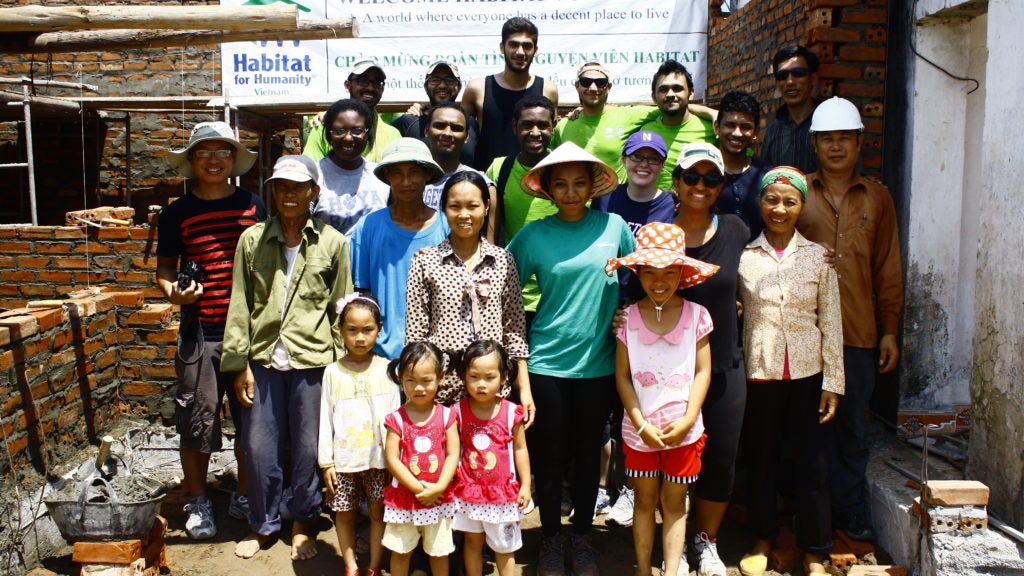Georgetown Students Confront Economic Assumptions in Community Engagement Program Trip to Vietnam

For 10 students at Georgetown University in Qatar, the academic study of economics, history, finance, and culture took a decisively personal turn, with a recent trip to Vietnam as part of the university’s Community Engagement Program (CEP). Theoretical study was crystallized through an intensive schedule of activities that spanned 12 days and covered a wide range of development themes.
The trip began in the capital of Hanoi where students met representatives from the Asian Development Bank, the lead economist of the Vietnam branch office of the World Bank, and key members of Vietnamese leadership, and concluded in the province of Thai Binh, where students worked laying bricks shoulder to shoulder with a Vietnamese family, and learned that building a house means much more than building a structure. Highlights of the trip also included a visit to a women’s museum, and to the bustling central wholesale market, where students interacted with local merchants in conducting a survey of their opinions on local economic conditions.
The students prepared for the trip through several structured classes, such as the history of economic development, the role of politics and international organizations, and gender and development. But for Georgetown students, reading and discussing issues is only part of the education equation.
“It is critical that future leaders go beyond the classroom to understand the reality of social issues, development, and the impact of the past on the present, and the projections for the future.” said Georgetown’s Dean Gerd Nonneman. “The Community Engagement Program, which is unique to the Qatar campus of Georgetown, encapsulates our approach to experience-based education, by integrating rigorous academic study with well informed, hands-on engagement with communities from around the globe. We know from experience that these are transformative experiences that have lifelong impact on our students.”
This is the first time the program has sent students from Doha to Vietnam, with previous areas of study and travel including Jordan, China and South Africa. “We chose Vietnam specifically because it is an interesting case study for our students studying emerging economies,” said Uday Rosario, Georgetown’s community engagement coordinator, who accompanied the students, along with 2 other members of Georgetown faculty,on their interactive trip. “This is a country that was once touted as the poster child of development, but has since encountered some challenges to that trajectory. On this trip, students got to see live examples of the economic and political models they’ve studied in class that tie into the development successes, as well as these challenges, Vietnam is facing.”
Following their return to Qatar, several students involved in the CEP program expressed the most surprise at the difference between studying Vietnam in terms of its horrific wartime experience, and being introduced to a Vietnam that is focused on forgiveness, and looking ahead to a better future. For International Politics junior Mohamed Sirelkhatim, “Studying theoretical models of economics isn’t always very interesting. But seeing how political decisions affect economics, and in turn, society, you see the true value of that education.”